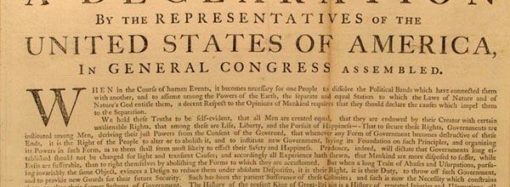A sad education story is emerging from Oakland, California. Poor kids soon could be deprived of the option of attending the city’s top-performing high school and producing some of the best results nationwide. Why? Because a state audit found financial mismanagement by Ben Chavis, charismatic leader of the successful American Indian Charter, and lack of proper controls by the school’s board.
The Oakland Unified School Board narrowly voted 4-3 in favor of shutting down the school that has topped California’s charts with its test scores. You’d be right to say the situation must be pretty bad for a school that successful to be shuttered down.
Nationally-renowned libertarian investigative journalist John Stossel says American Indian Charter’s amazing academic track record for students so poorly served throughout most of the traditional K-12 system should overshadow the fact that Chavis and his wife made so much money off the school:
And those kids got a better education for less tax money. Who cares if Chavis kept some?
The Blob cares. The school board will get about $10 million back if they are no longer obliged to send pupils to Chavis’ schools.
But another school choice advocate, Adam Emerson, argues that the scope of the financial dealings left the Oakland school board with no other option. He says the charter board needs to take some drastic steps to save the school from the brink of extinction:
The school’s success and continued promise ought to transcend the failings of its leadership. Therefore, the American Indian board ought to set aside its pettiness and hubris and appeal the revocation so that the Bay Area’s poorest and most underserved children can have a shot at a school that has stood for years at the top of California’s performance rankings. There, of course, should be assurances that the school will pursue the reforms that the school district demanded, which included hiring a third-party management company to oversee the network’s finances and operation.
But then, and most importantly, each member should promise to step down. If they don’t, then the county or the state should demand their resignations as a condition for the school’s survival.
However, Stossel quotes the school’s accused leader with a powerful retort:
Chavis says that if the board thinks he stole money, they should arrest him instead of shutting down his schools.
“If I did steal anything … punish me. Don’t punish the students.”
What can be said but there’s some serious differences of interpretation that may lead to some uncomfortable philosophical questions. To what extent should the profit motive be considered in public education in the case of a leader like Chavis is achieving such remarkable results?
Stossel’s condemnation of The Blob‘s priorities rings true. What would a survey of taxpayers say about the financial propriety versus the academic success? More importantly, what would the students and their parents have to say? But Emerson is the one confronting the practical reality of the situation. And his advice well may make the best sense to help ensure a successful school can stay open and get back on track.
Because Chavis is definitely right about this point: Don’t punish the students!








